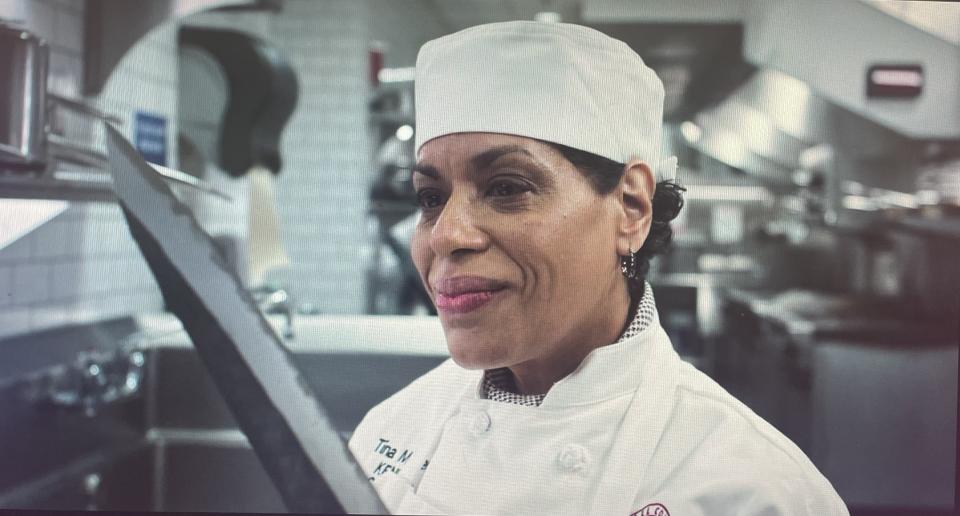‘The Bear’ Tackles Serious Themes About Alcoholism, Anxiety and Suicide — And It’s a Comedy?

“Let’s not make ’em laugh” seems to be the new mantra for rewarding comedies at the Emmys.
Clear-cut, humor-filled chuckle fests once dominated the Emmys for comedy series, with classics such as “Taxi,” “The Golden Girls,” “Friends” and “Seinfeld” amusing generations of fans and finding new life via reruns and streaming services.
More from Variety
Disney Television Animation Celebrates 40 Years of 'Wildly Diverse' Family Entertainment
Why Didn't 'Girls5eva' Hit on Netflix As It Should Have? Here's My Unfortunate Theory
However, at the dawn of the streaming era, the multi-pronged so-called dramedy began creeping up in the awards circle with titles such as Netflix’s “Orange Is the New Black” — which famously changed from comedy to drama — and Amazon Prime Video’s “Transparent.” As of late, the category has taken a more serious turn.
In recent years, the nominees and winners for comedy series have reflected a broader, more inclusive interpretation of comedy. Shows like Amazon’s “The Marvelous Mrs. Maisel” and “Fleabag,” along with HBO’s “Barry” and Apple TV+’s “Ted Lasso” have garnered critical acclaim and prestigious awards despite often straddling the line between comedy and drama.
This year, more dramatically leaning series — or even straight dramas — are rising to the top in favor of traditional humor-filled shows. Yet, they still remain in the comedy category. FX’s “The Bear,” which follows Jeremy Allen White’s Chef Carmy as he takes over his brother’s restaurant following his sibling’s death by suicide, is adored by fans and critics. However, the serious tone that each episode takes often raises questions about whether it belongs in the same category as ABC’s mockumentary “Abbott Elementary” or Hulu’s mystery romp “Only Murders in the Building.” Even this year’s return of HBO/Max’s “Hacks” has a more dramatic undercurrent than seen previously.
The divisions between comedy and drama categorization at the Emmys have become increasingly tenuous. In 2015, the Television Academy automatically placed any show that clocked in under 30 minutes in the comedy category and any show longer than that in drama. However, in 2021, this changed again when the Academy announced they would no longer consider a show’s running time when categorizing. The shifting landscape has sparked debates about the essence of humor in contemporary award-winning shows.
“The Bear” is so harrowing that one of the two best episodes of the season, “Fishes,” covers a past holiday dinner with Carmy and his dysfunctional family, including his brother (Jon Bernthal), five years before his death. Its comic relief is a pre-dinner prayer from guest comedy actor contender John Mulaney. It’s rare to see a TV comedy finding humor in suicide and addiction. The other most impressive episode is “Forks,” which follows Richie (Ebon MossBachrach) as he’s trained at everything — from cleaning forks to working a kitchen — at an upscale restaurant. And the most powerful scene may just be when the executive chef opens up about her own battles with depression. Again, not exactly laugh-out-loud material.
According to multiple industry sources, networks and strategists have been attempting to trigger a TV Academy review of “The Bear” to shift it to the drama series race, where it will face off against its network sibling, “Shōgun.” This is highly unlikely to find traction. While it can be argued that “The Bear” is less humorous than last year’s actual drama series winner “Succession,” this has been a long-debated topic that has also poured into the film space, especially surrounding the Golden Globes. Do you remember movies such as Ridley Scott’s “The Martian” and Spike Jonze’s “Her” being deemed comedies in their respective years?
Read: All Primetime Emmy predictions in every category on Variety’s Awards Circuit.

“The Bear” has been an undeniable success, breaking the record for the most Emmy wins of a comedy series in its freshman run, and it could break the all-time nomination record for a comedy series, currently held by “30 Rock” with 22. Watching their competitors win — and win big — is something other networks hate.
When you look at the guest acting lineup, one that’s sure to be inundated with multiple actors from “The Bear” — Bernthal, Jamie Lee Curtis, Bob Odenkirk, Sarah Paulson and Mulaney — standing next to the comedic antics of “Saturday Night Live” hosts Kristen Wiig, Maya Rudolph and Ryan Gosling, the list doesn’t necessarily depict the same genre synergy.
And what about some of the dramas that seem more comedic leaning but are still angling to be taken seriously? Arguments can be made that drama contenders such as “Fallout,” “The Curse,” “Mr. and Mrs. Smith” and “Loki” could fit better in a comedy landscape.
The transition from traditional sitcoms to more complex dramedies raises questions about the nature of comedy in the streaming era. Classic comedies were often characterized by their episodic nature, laugh tracks and a clear focus on humor. But many vintage sitcoms tossed in heavy topics every now and then to draw both laughter and tears from their audiences. For example, “Golden Girls” tackled grief, aging, homelessness, antisemitism and more; “Taxi” covered drug addiction, nuclear war and animal abuse; “Designing Women” had an episode about AIDS that was nominated for an Emmy for outstanding writing in a comedy series. And don’t get us started on “M*A*S*H.”
In contrast, many modern shows blur genre boundaries and use dabs of humor as a tool to explore deeper themes.
This evolution reflects broader changes in audience expectations and cultural norms. Viewers today often seek more than just entertainment; they want stories that resonate on multiple levels and reflect the complexities of real life. As a result, comedy series have adapted to meet these demands, offering humor intertwined with genuine emotional depth.
Does that make “The Bear” any less of a comedy? Not necessarily. But like any piece of art, it’s up to interpretation.
Best of Variety
Emmy Predictions: Documentary and Reality Categories Heat Up With Two Weeks Left Until Voting Begins
Emmy Predictions: Lead Actor (Limited/TV Movie) - Andrew Scott Could be the One to Beat for 'Ripley'
Sign up for Variety’s Newsletter. For the latest news, follow us on Facebook, Twitter, and Instagram.

 Yahoo Lifestyle
Yahoo Lifestyle 
